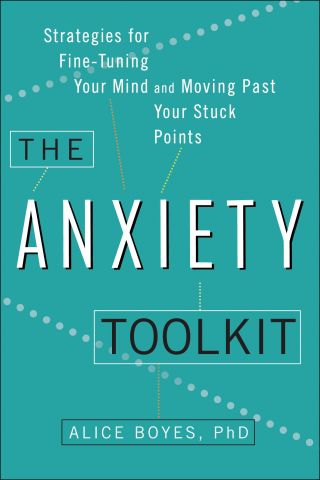Perfectionism
21 Things Clinical Perfectionists Do
What's the difference between ordinary perfectionism and a problem?
Posted March 16, 2015
In limited doses, perfectionism can be a healthy strategy for getting ahead. Clinical perfectionism, however, is a darker form that often impairs performance rather than improves it.
Do you know anyone like this? Which of the following can you relate to personally?
1. You give up before starting.
e.g., You want to buy a new home but are convinced you won’t find a house that ticks all your boxes. You don’t even try.
2. You avoid delegating because you think others won’t meet your standards.
e.g., You won’t let your husband do the dishes because he doesn’t do them your way.
3. You freak out if you don’t get enough praise or the right kinds of praise.
e.g., If someone says “good job,” you wonder why the person didn’t say “great job.”
4. You’re beyond punctual.
e.g., You arrive for all appointments 30 minutes early in order to not be late.
5. It stresses you out if you don’t get to complete your routines as planned.
e.g., You always do 100 sit-ups, but your spouse interrupts you and messes up your count. You start counting from the beginning again because you want to be precise.
6. You find yourself correcting others.
e.g., You correct a friend who pronounces something wrong, because not doing so would bug you.
7. You palm tasks off on your significant other when you’re not confident of performing them well.
e.g., You let your spouse make all the investment decisions because you don’t want to be responsible in an area where you lack confidence. Or, you cajole your spouse into making phone calls you feel anxious about.
8. You hoard “just in case.”
e.g., You keep lots of useless stuff in case you might need it or want to use it.
9. You find it difficult to make some simple decisions.
e.g., If you find clothes shopping difficult, you always bring a friend to tell you what looks good on you. You avoid planning get togethers because you don’t want to have to pick the restaurant.
10. You repeat yourself to make sure others have gotten the point.
e.g., You explain stuff repeatedly to make extra sure others have 100 percent understood. Or, you don’t stop an argument/discussion until the other person has acknowledged your points.
11. You want to be good at stuff straight away.
e.g., You don’t do things unless you think you’ll be good at them right away. You avoid things like dance classes—even when they interest you—if they are outside your comfort zone. Being an average performer in any type of class would really bother you.
12. You check items over before you buy them.
e.g., When buying clothing you inspect the item for any loose threads. Or, you look over each apple you’re buying to make sure it doesn’t have blemishes.
13. You put all your self-esteem “eggs” in just a few baskets.
e.g.,Your sense of self-esteem hinges on your accomplishments in just a few domains, such as your career, your income, or your children’s success.
14. It bugs you when other people won’t do something your way.
e.g., If your spouse puts the olive oil back in the wrong cupboard, you feel irritated and say, “That’s not where it’s supposed to go.”
15. You find yourself making mistakes in some areas because being so detail orientated in other areas is very time and energy sapping.
e.g., You lose concentration while driving because you're thinking hard about something in your mind.
16. You develop elaborate systems for record keeping but don’t maintain them because the process is too onerous.
e.g., You plan to scan every business receipt, but in reality this is too much work, so you just stuff them in a drawer.
17. You say no to opportunities if you’re not 100 percent confident you’ll perform well.
e.g., You're a good singer and a couple asks you to sing at their wedding. Because you're not sure if your nerves would get the better of you, you decline.
18. You set self-protective rules to make sure you don’t find yourself in a situation where you can’t meet your own expectations.
e.g., You'll only say yes to collaborations if they're set up in the way you like to work.
19. You point out when others are not doing things the way you’d do them or aren’t following a rule.
e.g., You make suggestions to coworkers about how they could do something a “better” way.
20. You like to follow directions exactly.
e.g., You want to know exactly how many minutes of meditation you need to be doing. You want to make sure you're doing a task absolutely correctly.
21. You get defensive if anyone criticizes you even slightly.
e.g., If someone gives you mostly positive feedback with one or two negatives, you find yourself arguing with them about why their negative points aren’t valid.

You might only relate to a quarter or a third of the above patterns, but if you find these patterns trip you up in your life, you probably have an issue with perfectionism.
Since clinical perfectionism causes anxiety, you'll find many strategies to help in my book, The Anxiety Toolkit: Strategies for Fine-Tuning Your Mind and Moving Past Your Stuck Points, including a full chapter on perfectionism, and others on avoidance coping, intolerance of uncertainty, and sensitivity to feedback.
You can get the first chapter of the book for free by subscribing to my blog updates here.
References: Egan, S. J., Wade, T. D., & Shafran, R. (2011). Perfectionism as a transdiagnostic process: A clinical review. Clinical Psychology Review, 31(2), 203-212.




